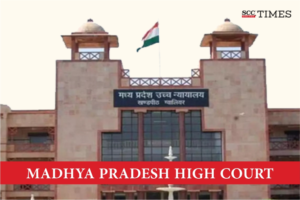Madhya Pradesh High Court: In a writ petition filed under Article 226 of the Constitution of India, seeking various reliefs including quashing the impugned order of allotment dated 24-07-2024, directing the respondents to include the name of the petitioner in the Select/Allotment List, and calling for an inquiry into the matter with strict penal action against the alleged illegality, a single-judge bench of G.S. Ahluwalia, J., dismissed the petition on grounds of non-joinder of necessary parties and lack of substantive evidence to challenge the eligibility of the selected firms. The Court reiterated the principles governing judicial review in contractual matters and the responsibilities of legal professionals in the administration of justice.
Factual Matrix
In the instant matter, the petitioner filed a writ petition seeking various reliefs including quashing the impugned order of allotment dated 24-07-2024, direction to the respondents to include the petitioner’s name in the Select/Allotment List and call for an inquiry into the matter with strict penal action against the alleged illegality.
The petitioner alleged that they were the most eligible firm for the allotment of work related to the development/renovation/retrofitting/additional construction works of 55 P.M. Excellence Colleges in Madhya Pradesh, but no college was allotted to them in the final list of selected architectural firms. The petitioner claimed that the selection process was flawed, and the architectural firms selected did not meet the eligibility criteria.
However, the State contended that the petitioner did not provide any concrete evidence to support the claim that the selected firms were ineligible. The State raised objected regarding non-joinder of necessary parties as the petitioner did not include the selected architectural firms as parties in the petition and contended that the petition is liable to be dismissed.
Court’s Analysis
Non-Joinder of Necessary Parties
The Court stated that any party likely to be adversely affected by the order must be made a party to the writ petition. The Court asserted that since the selected architectural firms were necessary parties to the petition, as they would be directly affected by any order passed, therefore, it was necessary to add them as necessary parties. The Court opined that the present petition is liable to be dismissed for non-joinder of necessary parties.
Judicial Review in Contractual Matters
The Court rejected the petitioner’s contention that the matter was purely a selection process and noted that the selection of architectural firms involves contractual elements, including consultancy fees and project responsibilities. The Court reiterated that the court would not interfere in contractual matters unless a clear case of arbitrariness, mala fides, or bias was made out.
The Court noted that the petition primarily consisted of self-praise without substantiating claims against the other firms. The Court stated that in the present matter the petitioner failed to provide evidence that the selected firms did not meet the eligibility criteria or that there was any arbitrariness in their selection.
Court’s comment on Counsel’s Conduct
The Court expressed concern over the petitioner’s counsel’s conduct and noted that an attempt to seek adjournment when it became apparent that the court might dismiss the petition is a “glaring example of Bench hunting”. The Court also emphasised on the noble nature of the legal profession and highlighted that advocates should maintain the utmost good faith, integrity, and fairness. The said that “profession of an Advocate is not a business or commercial activity. They are supposed to put forward the case of their client by exercising their professional skills, but they should not try to make the profession, a commercial activity.” The Court further stated that advocates cannot pressurize the Court to pass a favorable order, so that they can recover the fee from their client. “The Courts are not supposed to be concerned about the recovery of fee of an Advocate from his client.” The Court condemned the conduct of petitioner’s counsel in making unparliamentary comments.
Court’s Decision
The Court held that the petitioner failed to demonstrate any ineligibility or arbitrariness in the selection process, and since the judicial review in such contractual matters is limited, no case is made out warranting interference. The Court dismissed the petition on account of non-joinder of necessary parties, as the successful architectural firms were not impleaded.
[Kushi & Associates v. State of M.P., 2024 SCC OnLine MP 5224, Decided on 02-08-2024]
Advocates who appeared in this case :
Shri Sukhendra Singh, Counsel for the Petitioner
Shri Swapnil Ganguly, Deputy Advocate General, Counsel for the Respondents/State

